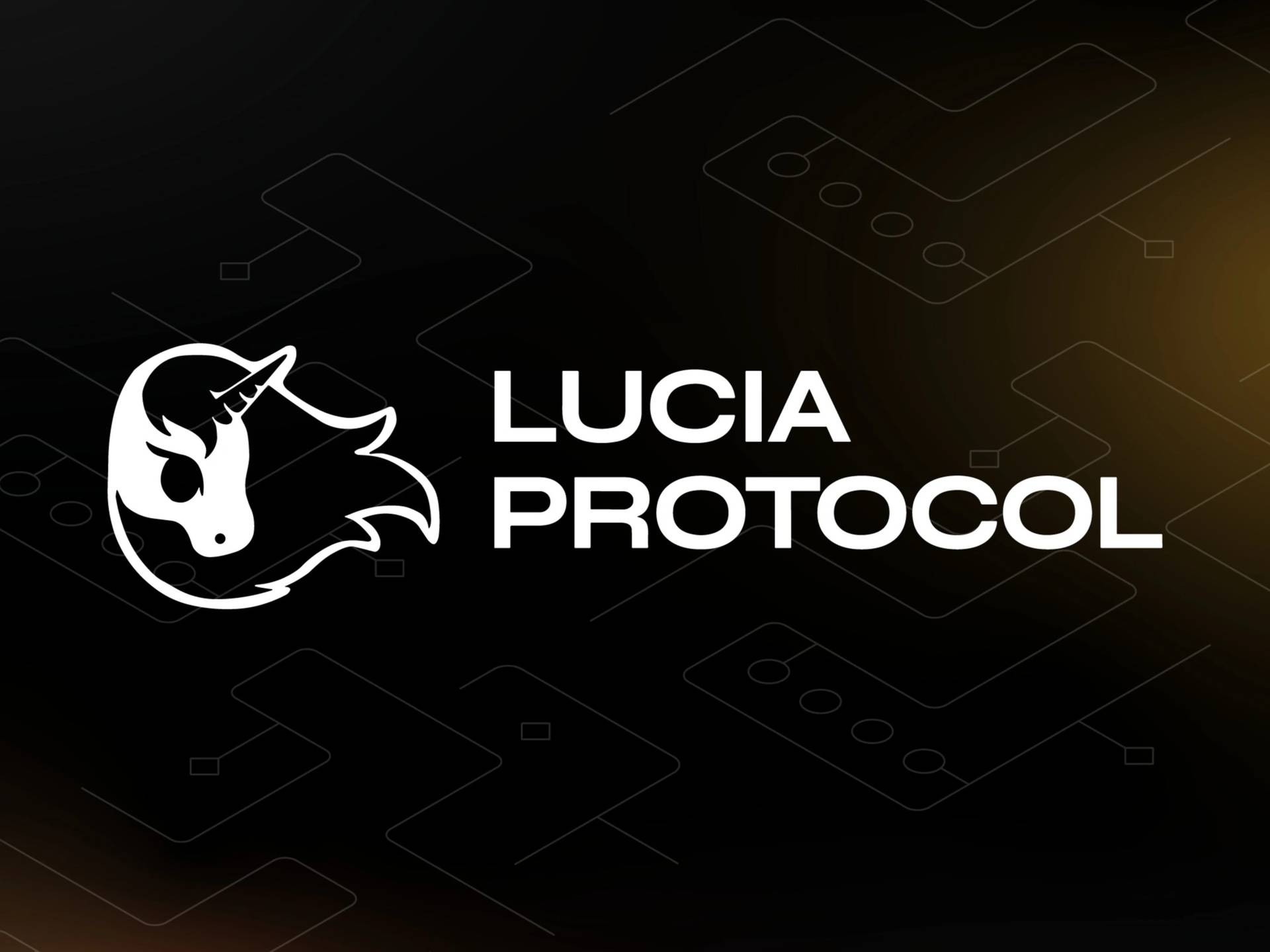Subscribe to wiki
Share wiki
Bookmark
Lucia Protocol
The Agent Tokenization Platform (ATP):Build autonomous agents with the Agent Development Kit (ADK)
0%
Lucia Protocol
Lucia Protocol integrates Web2 and Web3 technologies to provide secure, privacy-preserving ad attribution and identity management solutions. It uses blockchain and AI to enable data sharing, fraud prevention, and decentralized governance within a unified ecosystem. [1]
Overview
Lucia Protocol is an AI-driven platform for ad attribution that integrates data from Web2 and Web3 while maintaining user privacy. It provides advertisers with verified, fraud-resistant insights across multiple platforms and chains and enables users to manage and monetize their data through a token-based system. The platform incorporates real-time attribution, decentralized identity, and an incentive-driven economy to optimize ad spending and support decentralized digital identity management. Its design focuses on creating an equitable advertising ecosystem by offering actionable insights to advertisers and empowering users to control and profit from their data. [2]
Features
Ad Attribution System
Lucia Protocol’s ad attribution platform enables real-time tracking of user engagement across Web2 and Web3 environments, including social media, e-commerce, blockchain wallets, and dApps. It offers multi-channel attribution by monitoring clicks, conversions, and actions, providing advertisers with detailed behavioral insights. Customizable attribution models support flexible campaign analysis, such as first-click, last-click, and multi-touch. The system offers insights into daily clicks, unique wallet addresses and devices, page visits, conversion events, user time zones, IP data handled with privacy safeguards, and device types, enabling advertisers to optimize engagement strategies and website functionality. [3] [4]
Cross-Chain Passport
Lucia Protocol’s Cross-Chain Passport is a decentralized identity solution that integrates Web2 and Web3 profiles, enabling users to manage and verify their identities across platforms. The system utilizes Zero-Knowledge Proofs (ZKP) for privacy-preserving verification, allowing users to validate engagement without revealing personal data. It supports seamless cross-chain interactions and is compatible with multiple blockchain ecosystems, including Ethereum and Binance Smart Chain via LayerZero. Users can monetize their data selectively through tokenized sharing, while Sybil-resistant infrastructure ensures that only verified data is included, safeguarding against malicious activity. Unified profiles created by linking social accounts, emails, and wallets enable accurate data attribution and controlled monetization. [2]
Browser Extension
Lucia Protocol's browser extension enables users to self-attribute data, capturing metrics such as click-through rates, session duration, and purchase history. The data is anonymized and securely stored, allowing users to control what information they share with advertisers. Zero-Knowledge Proofs ensure privacy, enabling data sharing without revealing sensitive details, while users retain autonomy and earn rewards for their contributions. [2]
Fraud Detection
Lucia Protocol incorporates advanced fraud prevention measures to maintain data integrity and protect advertiser investments. AI-driven Sybil protection identifies anomalous patterns to prevent fake interactions, while validators use Zero-Knowledge Proofs to verify legitimate user behavior. A Sybil protection layer ensures that interactions are genuine. Fraud detection services provide additional security by detecting malicious activities. Fees from these services are distributed to LCI stakers as rewards, while validators receive incentives for accurate fraud prevention, fostering a reliable and trustworthy ecosystem. [2]
Ambassador Program
Lucia Protocol’s Ambassador Program incentivizes community members to contribute to platform growth through a tiered structure, a leaderboard system, and staking rewards. The program has three tiers: Elite Ambassadors, who create content and host events; Growth Ambassadors, who promote the platform and moderate discussions; and Enthusiast Ambassadors, who engage with and share content. A gamified leaderboard ranks ambassadors based on social influence, community engagement, and data contributions, offering rewards such as exclusive content access and token bonuses. Participants earn staking rewards in LCI tokens, with additional incentives for governance participation and increased influence for early adopters. [2]
LCI
The LCI token is central to Lucia Protocol’s ecosystem, supporting data attribution, identity verification, and fraud prevention. Users earn LCI by sharing anonymized data, engaging with the ad attribution network, and participating in governance. Advertisers use LCI to access services, while users can stake tokens to gain governance rights, higher rewards, and access to premium features. Staking also supports decentralized identity verification via the Cross-Chain Passport and validates ad engagements using Zero-Knowledge Proofs. Transaction fees in LCI contribute to token deflation through periodic burns.
The protocol includes a revenue-sharing model, distributing a portion of advertising and data-sharing profits to stakers through a stake-weighted airdrop system, incentivizing long-term participation. LCI also facilitates Sybil data query fees for fraud prevention, provides businesses with tools for deeper market insights and higher conversion rates, and supports rewarding specific user behaviors, such as successful decentralized finance transactions. These utilities encourage active engagement and align participant incentives within the ecosystem. [5]

Tokenomics
LCI has a fixed supply of 100M and has the following distribution: [5]
- Reserve: 34%
- Investors: 16%
- Ecosystem Incentive: 16%
- Team: 12.5%
- Marketing: 11.5%
- Advisor: 5%
- Public Sale: 5%
Governance
Lucia Protocol employs a decentralized governance model where LCI token holders influence decisions on fee structures, platform upgrades, and tokenomics. Each staked token equals one vote, with increased voting power for long-term stakers. Token holders can submit proposals, discuss, and vote on protocol changes, ensuring community-driven development.
Governance operates on an Epoch-based structure, where participants lock tokens during cycles to gain voting influence and staking rewards. Additional LCI rewards incentivize active engagement, while extended staking within an Epoch enhances governance influence, encouraging long-term commitment to the protocol's evolution. [2]
Partnerships
- Movement Labs
- CoinSub
- Cube3
- FractalID
See something wrong?
The Agent Tokenization Platform (ATP):Build autonomous agents with the Agent Development Kit (ADK)
